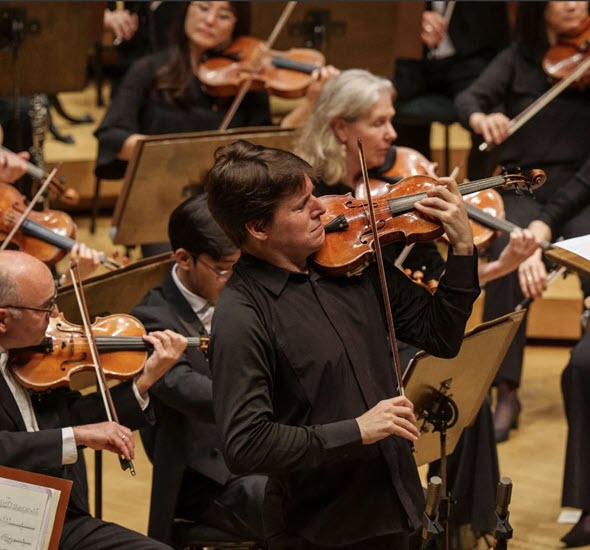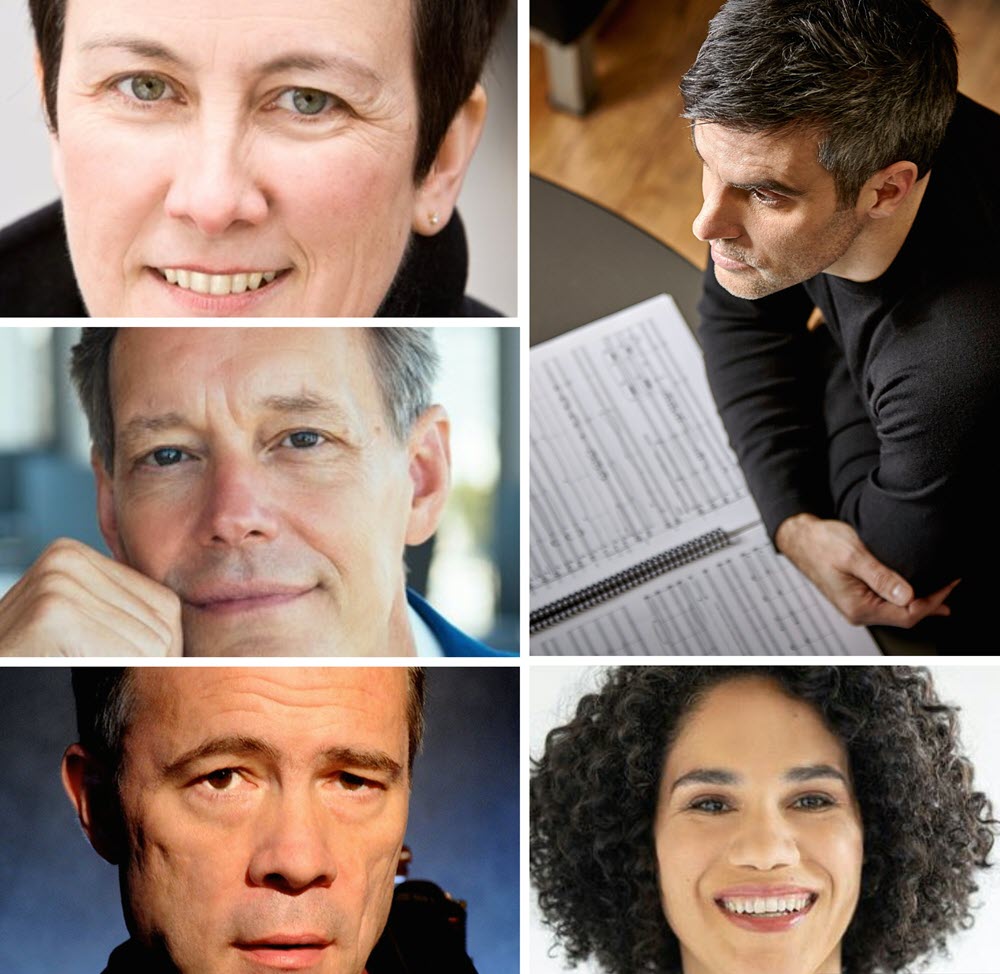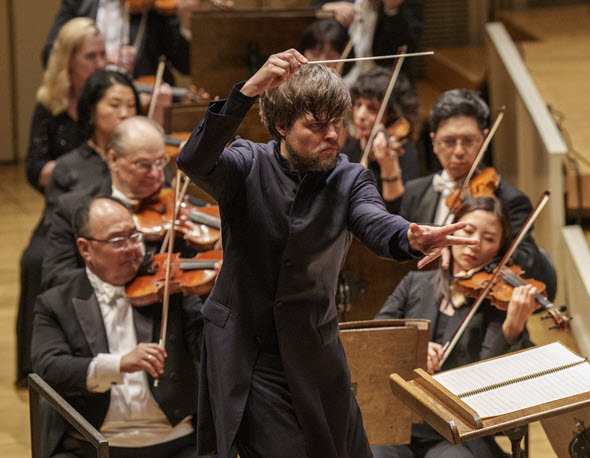In concerto ‘The Elements,’ CSO and violinist mined the potential of composer partnerships

Violinist Joshua Bell organized a collaborative approach to commission five new short works for violin and orchestra, which he is performing around the world. The Chicago Symphony Orchestra was host to the work’s Midwest premiere. (Todd Rosenberg concert photos)
Review: Chicago Symphony Orchestra conducted by Jurai Valčuha; Joshua Bell, violin. June 13 at Orchestra Hall.
By Nancy Malitz
Premieres in the classical music world are too often one and done – works that don’t gain enough traction to compensate for the tremendous amount of time and energy that goes into their incubation and mastery.
But violinist Joshua Bell’s prolonged focus on the commissioning and development of an ambitious five-composer, five-movement violin concerto with epilogue, “The Elements,” involved such a smart, systematic and widely collaborative approach that it would well serve as the blueprint for similar endeavors.
“The Elements” received its Midwest premiere by the Chicago Symphony Orchestra on June 13, led by the highly accomplished Slovakian conductor Juraj Valčuha.
The new work’s world and American premieres both occurred in September, under Alan Gilbert with the NDR Elbphilharmonie Orchestra in Hamburg and under Jaap van Zweden at the New York Philharmonic. Van Zweden led the Asian premiere in Hong Kong last fall as well. Still ahead are performances by the Seattle Symphony with Peter Oundjian in mid-June, and with Gianandrea Noseda and the National Symphony at the D.C. Kennedy Center in mid-October.
That’s five orchestras with five conductors and roughly 500 orchestra musicians involved in bringing “The Elements” to more than 100,000 estimated listeners so far. It’s unusual enough to present a concerto that represents the work of five composers, but the project’s ambitions are greater; additional performances in other countries already are booked. The more you get into the micro and the macro of the project, the shrewder sense it makes:
From the beginning, Bell developed “The Elements” project as a series of short pieces for violin and orchestra that could stand alone or work together. Each piece was created by a different composer whom Bell admired – all rather tonally inclined, all born between 1962 and 1981, with Pulitzers, Grammys and stacks of major honors among them.

Composers of ‘The Elements’ clockwise from top right: Kevin Puts, Jessie Montgomery, Edgar Meyer, Jake Heggie, and Jennifer Higdon.
Kevin Puts’ “Earth,” the opening movement, lingers in the ear. It sets the mystical atmosphere of “The Elements” – expansive, spiritual, floating, unmistakably romantic with longing, reflective in its arc; the lovely material returns as epilogue following the fifth movement in the cycle. (Puts’ opera ‘The Hours’ premiered at the Metropolitan Opera in 2022.) Jessie Montgomery, the Chicago Symphony’s composer in residence who just won the 2024 Grammy Award for Best Contemporary Classical Composition, wrote the fifth movement, titled “Space,” which includes a wild cadenza-like foray for the violinist. (No surprise that Montgomery wrote for the violin ambitiously; she is a fine fiddler herself.)
Jennifer Higdon’s “Air,” the fourth movement, was less tornado than clean breeze, intricate and welcome in its moment. Edgar Meyer’s second movement, “Water,” moved from delicate rivulets of melody to something a lot more like crashing floods in swiftly negotiated crescendos; likewise, Jake Heggie’s ensuing “Fire” flickered over a huge range, from quiet spark to explosive extravagance, coy, piercing, brutal. Wind playing was otherworldly throughout.
Is a recording of “The Elements” in the works? Almost certainly, given how well the project has been conceived and built. Below is a video from the Hamburg NDR world premiere although it does not come close to the distinctive solos and interstellar acoustical strangeness of the live Orchestra Hall experience.
In his wholly assured support, conductor Valčuha led with a great sense of theater, and the musicians played well for him. He also shaped a quite dazzling account of the 18-year-old Shostakovich’s Symphony No. 1, probably the finest first symphony by any teen ever. Had this been a typical concert, one might have devoted the greater share of words to the Chicago Symphony’s brilliant performance full of quick-change surprises that ranged from haunting wind solos to audacious giddiness, percussive jabs and razor-sharp farce.
The CSO season has been awash in youthful brilliance of late. Hong Kong conductor Elim Chan, 37, did a masterful job leading the CSO in Rimsky-Korsakov’s “Scheherazade” a few weeks back. And on June 20, the Israeli conductor Lahav Shani, 35, returns June 20-23 to conduct Tchaikovsky’s “Pathétique” Symphony on a program with 33-year-old Daniil Trifonov as soloist in a jazzy piano concerto that former CSO composer in residence Mason Bates wrote for him.


